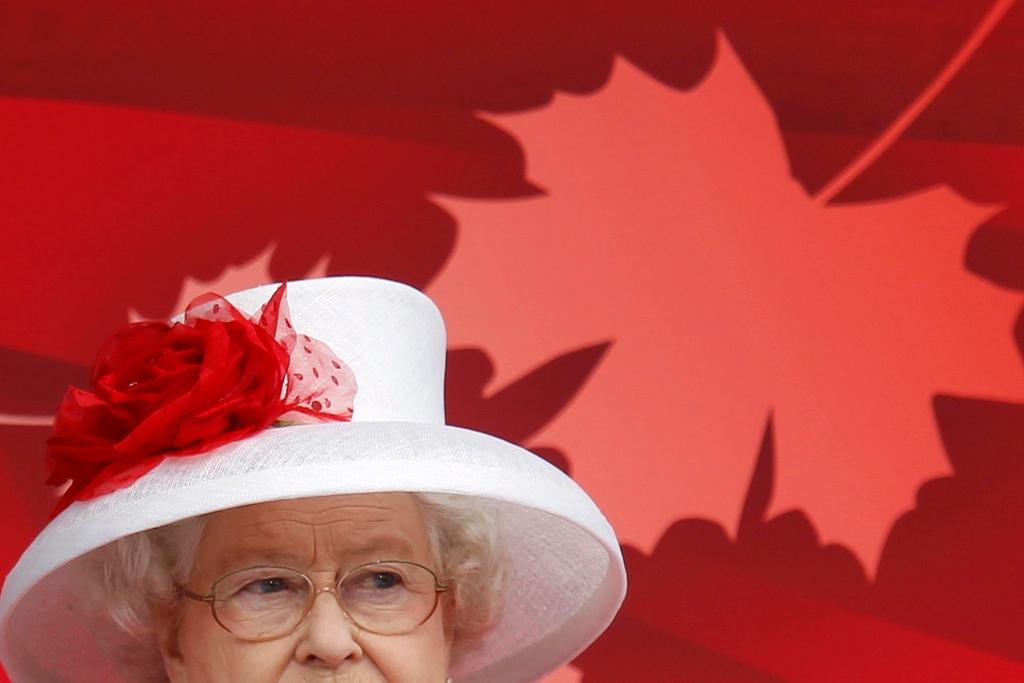Canada: the death of democracy?
Queen Elizabeth II during Canada Day celebrations in Ottawa, July 1, 2010.
TORONTO, Canada — Canadians were recently shocked to learn that Agent Orange — the cancer-causing herbicide sprayed by American forces during the Vietnam War — was used for decades on massive tracts of land in the province of Ontario.
Beginning in the 1950s, and continuing until 1980, the toxic chemical cocktail was used by the government of Ontario and forestry companies to kill weeds and unwanted brush from government-owned land in northern parts of the province, and along roadsides.
Workers who marked spray paths for planes, or who manually sprayed the chemical from tanks strapped to their backs, finished their workdays drenched in the poison. Some now report suffering from cancers, skin ailments or low sperm count.
The widespread spraying was kept secret by successive provincial governments in Ontario until a Toronto Star investigation revealed the deadly practice.
There is also evidence that federal transportation workers used the toxin to clear weeds at airports. But the federal government has rejected calls for a probe to reveal the extent of Agent Orange’s use across the country.
Critics describe this as the federal government’s default mode — to stonewall or deny, even when the evidence of scandal is overwhelming. And Canadian democracy is the poorer for it.
The state of Canada’s democracy was highlighted earlier this month after one of its most eloquent and passionate defenders, political columnist James Travers, died suddenly at the age of 62.
Travers ran the Southam News agency, the Ottawa Citizen and the Toronto Star before distinguishing himself as the Star’s national affairs columnist in Ottawa during the last dozen years.
Last year, he won a National Newspaper Award, the highest honor in Canadian journalism, for a lengthy column headlined, “The quiet unraveling of Canadian democracy.”
In one of his last columns, he called for the firing or resignation of cabinet minister Bev Oda, who is responsible for Canada’s international aid.
The controversy engulfing Oda stems from a decision in 2009 to deny $7 million in funding to Kairos, an humanitarian aid group made up of mainstream Christian churches, which had long been funded by previous governments. Another cabinet minister suggested funding was rejected because Kairos did fully not back the government’s staunchly pro-Israel stand.
Oda instead left the impression she was simply applying the recommendation of her bureaucrats at CIDA, the government’s international aid agency. A CIDA letter then emerged indicating the agency had in fact recommended that funding be given. But the letter also revealed that someone had inserted, by hand, the word “not” in front of “approved.”
Last December, Oda told a parliamentary committee she didn’t know who inserted the word “not.” Last month, she changed her story and admitted the word was inserted on her orders. Prime Minister Stephen Harper has since rejected calls that she be fired for misleading Parliament.
The Speaker of the House of Commons, Peter Milliken, ruled that Oda may have misled the legislature. He also ruled that the government withheld information from a parliamentary committee when it refused to divulge the costs of crime legislation that will further crowd prisons.
“This is a serious matter that goes to the heart of the House’s undoubted role in holding the government to account,” said Milliken, who acts as a neutral referee in the legislature. In Canada’s parliament, a speaker’s ruling has the weight of a judicial decision.
He then triggered a committee process which, by later this month, will likely see a cabinet minister and Harper’s government found guilty of contempt of Parliament — the first time that has happened in Canadian history.
That would increase the likelihood of opposition parties bringing down Harper’s minority government before, or shortly after, the March 22 federal budget. Charges of abuse of power would then become the focus of opposition attacks during a possible spring election.
Opposition parties certainly have a lot to shout about.
Harper’s party was recently charged under the Elections Act for using a complex money-transfer scheme to break spending limits in the 2006 election that first brought Harper to power.
Then there’s Harper’s suspension of Parliament in December 2009 to avoid a parliamentary inquiry into alleged mishandling of Afghan detainees by Canadian soldiers; the secret manual telling Conservatives how to disrupt the workings of Parliament; the muzzling of public servants and the diplomatic corps; the disregard of the fixed-date election law; cutting back on the gathering of census information used to assess the quality of government programs; foot-dragging on freedom of information requests; and the recent decision to replace “Government of Canada” on official documents with “Harper Government.”
The list of alleged abuses is much longer, and the image of a frayed democracy grows.
“Here, power and control are increasingly concentrated and accountability honored more in promise than practice,” Travers once wrote.
“Canadian politicians flout the will of voters and parties,” he added. “Once-solid institutions are being pulled apart by rising complexity and falling legitimacy. Scandals come and go without full public exposure or cleansing political punishment. If not yet lost, Camelot is under siege.”
We want to hear your feedback so we can keep improving our website, theworld.org. Please fill out this quick survey and let us know your thoughts (your answers will be anonymous). Thanks for your time!
